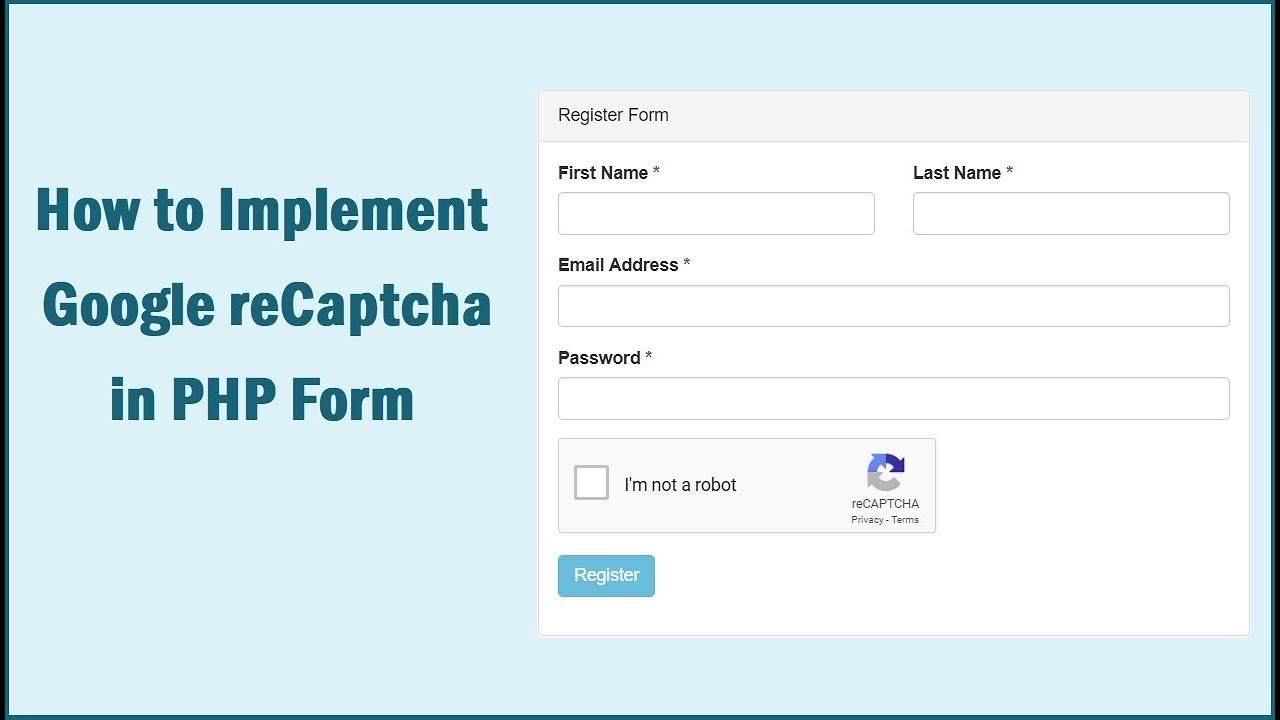Introduction
In today's digital landscape, web browsing has become an integral part of our daily lives. Whether it's for work, entertainment, or research, the internet serves as a gateway to a wealth of information and resources. However, as online security measures continue to evolve, users often encounter CAPTCHA challenges while browsing, particularly on the Chrome browser. CAPTCHA, which stands for Completely Automated Public Turing test to tell Computers and Humans Apart, is designed to distinguish between human users and automated bots, thus preventing spam and unauthorized access to websites.
While CAPTCHA serves a crucial security function, it can also be a source of frustration for users, especially when encountered frequently. The good news is that there are several strategies and tools available to help mitigate the impact of CAPTCHA challenges, allowing for a smoother and more seamless browsing experience.
In this article, we will explore various methods to avoid CAPTCHA challenges on the Chrome browser. From utilizing browser extensions to disabling JavaScript and leveraging automated CAPTCHA solving services, we will delve into practical solutions that can empower users to navigate the web with greater ease and efficiency. Additionally, we will discuss the option of changing IP addresses as a means of circumventing CAPTCHA challenges.
By understanding and implementing these techniques, users can enhance their browsing experience while maintaining the necessary security measures. Let's embark on this journey to discover effective ways to overcome CAPTCHA obstacles and optimize our Chrome browsing experience.
Using Browser Extensions
Browser extensions offer a convenient and effective way to streamline and enhance the browsing experience on Chrome. When it comes to bypassing CAPTCHA challenges, there are several extensions available that can automate the process and minimize user interaction with CAPTCHA prompts.
One popular type of browser extension designed to tackle CAPTCHA challenges is the auto-solving extension. These extensions are equipped with advanced algorithms that can analyze and solve CAPTCHAs automatically, sparing users the hassle of deciphering and inputting the correct characters. By integrating seamlessly with the Chrome browser, these extensions can significantly reduce the frequency and disruption caused by CAPTCHA prompts.
Furthermore, some browser extensions are specifically tailored to address CAPTCHA challenges encountered on certain websites or platforms. These specialized extensions are designed to recognize and handle the unique CAPTCHA mechanisms employed by specific websites, offering a targeted and efficient solution for users navigating those platforms.
In addition to auto-solving capabilities, some browser extensions provide users with the option to outsource CAPTCHA solving to human workers. Through crowdsourcing platforms, these extensions can submit CAPTCHA challenges to human workers who manually solve them, providing a reliable alternative to automated solving methods.
It's important to note that while browser extensions can be valuable tools for bypassing CAPTCHA challenges, users should exercise caution and ensure that they are sourced from reputable developers and trusted sources. Prioritizing security and reliability when selecting and installing browser extensions is essential to safeguarding personal data and maintaining a secure browsing environment.
By leveraging browser extensions tailored to address CAPTCHA challenges, users can navigate the web with greater efficiency and minimize disruptions caused by security measures. These extensions serve as valuable allies in the quest to optimize the browsing experience, empowering users to overcome CAPTCHA obstacles with ease and confidence.
Disabling JavaScript
Disabling JavaScript is a strategic approach that can be employed to mitigate CAPTCHA challenges encountered while browsing on the Chrome browser. JavaScript, a programming language commonly used to enhance website interactivity and functionality, is also utilized by websites to deploy CAPTCHA prompts. By temporarily disabling JavaScript, users can effectively bypass certain types of CAPTCHA challenges, thereby streamlining their browsing experience.
To disable JavaScript on the Chrome browser, users can access the browser settings and navigate to the "Site Settings" section. Within the Site Settings, there is an option to manage JavaScript permissions for individual websites. By toggling off the JavaScript setting for specific websites where CAPTCHA challenges are prevalent, users can effectively prevent the deployment of JavaScript-based CAPTCHAs, reducing the frequency of encounters.
It's important to note that while disabling JavaScript can be an effective strategy for bypassing certain types of CAPTCHA challenges, it may also impact the functionality and interactivity of websites. Many websites rely on JavaScript to deliver dynamic content and interactive features, and disabling it can result in a diminished user experience. Therefore, users should exercise discretion and consider the trade-offs when opting to disable JavaScript to avoid CAPTCHA challenges.
In addition to manually disabling JavaScript for specific websites, users can also utilize browser extensions that offer more granular control over JavaScript permissions. These extensions enable users to customize JavaScript settings on a per-site basis, providing a more flexible approach to managing CAPTCHA challenges without compromising the overall browsing experience.
By strategically disabling JavaScript for select websites or utilizing specialized browser extensions, users can effectively reduce the frequency of CAPTCHA challenges encountered while browsing on the Chrome browser. This approach empowers users to navigate the web with greater ease and efficiency, minimizing disruptions caused by CAPTCHA prompts while maintaining a balanced approach to website functionality and security measures.
Using Automated CAPTCHA Solving Services
Automated CAPTCHA solving services offer a sophisticated and efficient approach to addressing CAPTCHA challenges encountered during web browsing on the Chrome browser. These services leverage advanced algorithms and machine learning capabilities to automatically analyze and solve CAPTCHAs, sparing users the manual effort and time typically required to decipher and respond to these security prompts.
One of the key advantages of automated CAPTCHA solving services is their ability to seamlessly integrate with the browsing experience, minimizing user intervention and streamlining the interaction with CAPTCHA-protected websites. By leveraging cutting-edge image recognition and pattern analysis algorithms, these services can swiftly identify and process CAPTCHA prompts, delivering rapid and accurate solutions without disrupting the user's browsing flow.
Furthermore, automated CAPTCHA solving services often offer compatibility with a wide range of websites and CAPTCHA types, making them versatile solutions for users navigating diverse online platforms. Whether encountering text-based CAPTCHAs, image-based challenges, or more complex variations, these services are designed to adapt and effectively handle a spectrum of CAPTCHA mechanisms, providing users with a comprehensive and reliable means of bypassing security prompts.
In addition to their technical capabilities, automated CAPTCHA solving services prioritize user convenience and accessibility. Many of these services offer user-friendly browser extensions or APIs that seamlessly integrate with the Chrome browser, allowing for effortless deployment and utilization. This integration empowers users to harness the benefits of automated CAPTCHA solving without the need for extensive technical expertise, enhancing the accessibility and usability of these solutions.
It's important to note that while automated CAPTCHA solving services offer a compelling means of bypassing CAPTCHA challenges, users should exercise caution and ensure that they comply with ethical and legal considerations. It's essential to utilize these services in a manner consistent with the terms of use and policies of the websites being accessed, respecting the guidelines set forth by website operators and upholding ethical standards in online interactions.
By leveraging automated CAPTCHA solving services, users can navigate the web with enhanced efficiency and minimize disruptions caused by CAPTCHA prompts. These services represent a valuable asset in the quest to optimize the browsing experience, empowering users to overcome CAPTCHA obstacles with ease and confidence while maintaining a commitment to ethical and responsible online conduct.
Changing IP Address
Changing the IP address is a strategic maneuver that can be employed to circumvent CAPTCHA challenges encountered while browsing on the Chrome browser. An IP address serves as a unique identifier for devices connected to a network, and websites often utilize IP-based detection to assess user activity and implement security measures, including CAPTCHA prompts. By changing the IP address, users can effectively alter their digital footprint and evade certain CAPTCHA restrictions, thereby enhancing their browsing experience.
One approach to changing the IP address involves utilizing a virtual private network (VPN) service. VPNs enable users to mask their original IP address and adopt a new one associated with a different geographic location. By connecting to a VPN server located in a different region, users can effectively change their IP address and obscure their online identity, potentially evading CAPTCHA challenges linked to their original IP.
Furthermore, VPNs offer an added layer of privacy and security by encrypting internet traffic, safeguarding user data from potential threats and enhancing anonymity while browsing. This dual benefit of IP address manipulation and enhanced security makes VPNs a versatile solution for users seeking to bypass CAPTCHA challenges and fortify their online privacy.
Another method for changing the IP address involves utilizing proxy servers. Proxies act as intermediaries between users and the internet, routing internet traffic through their servers and assigning a new IP address to the outgoing requests. By leveraging proxy servers, users can effectively alter their IP address and navigate the web with a different digital identity, potentially evading CAPTCHA restrictions associated with their original IP.
It's important to note that while changing the IP address can offer a viable strategy for bypassing CAPTCHA challenges, users should exercise discretion and ensure that they comply with the terms of use and policies of the websites being accessed. Additionally, users should prioritize the selection of reputable VPN services or proxy providers to ensure reliability, security, and adherence to legal and ethical considerations.
By leveraging the capabilities of VPN services or proxy servers to change their IP address, users can effectively mitigate the impact of CAPTCHA challenges and optimize their browsing experience on the Chrome browser. This approach empowers users to navigate the web with enhanced flexibility and privacy, minimizing disruptions caused by CAPTCHA prompts while maintaining a commitment to ethical and responsible online conduct.

























